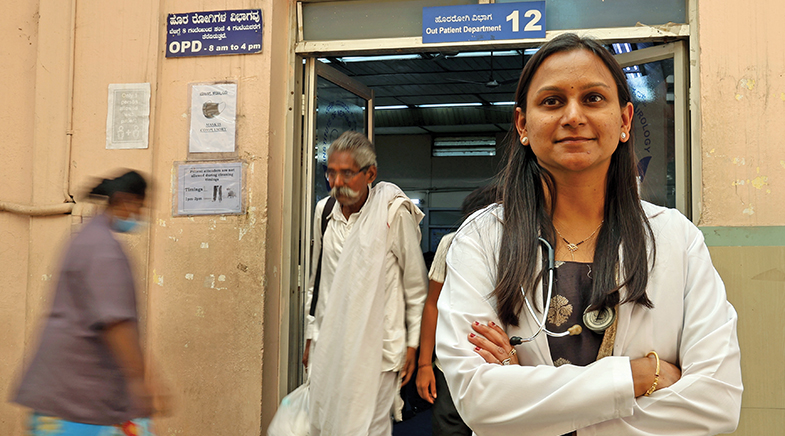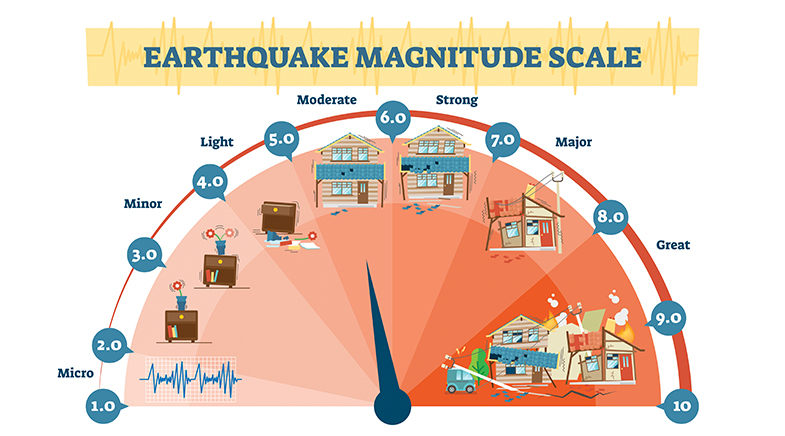Cancer in our sights
-
- from Shaastra :: vol 03 issue 08 :: Sep 2024

A variety of new tools is needed to get to the root of cancer. Indian firms have a chance to contribute to cancer care.
Choosing the Cover Story is one of our most important decisions while planning every new issue. We use several lines of logic to make this decision. Since the publication has a long shelf life, we rarely put a news-based story on the cover. Shaastra being an Indian magazine, the Cover Story needs to be of relevance to the country. Our normal practice is to pick a significant trend that is global as well as local, and tell the story using a mixture of Indian and overseas examples. In some cases, the overseas examples predominate – because many frontier areas are in their early stages in India. The Cover Story for this month, on cancer diagnosis and treatment, is an exception.
This is our first Cover Story on cancer. We go deep into the ongoing research in India to show how it will make a difference over the next decade.
Cancer therapy has changed remarkably in the past two decades. Improved understanding of cancer biology, early diagnosis through markers, genome sequencing and stratification of cancer types, and cell-based therapies have all taken cancer treatment forward. Shaastra has been covering some of these advances over the past two years. Gauri Kamath's story on precision oncology, however, is our first Cover Story on cancer. It is also an unusual one for the magazine because it is made up of only a few, purely Indian, examples. We made a departure from our practice of broader reporting to allow Gauri to go deep into some of this research in the country and show how it will make a difference over the next decade.
THE CATALYSTS
There is a story within the story that is of relevance beyond cancer care, beyond medical science, beyond even science. It is about how things can happen naturally with the right infrastructure, both physical and intellectual. It is also a lesson in the value of funding start-ups, especially those which use high science and operate with high risks. As any drug researcher will testify, drug discovery and development are high-risk activities, and they can happen only in a society with a high tolerance for failure. Buoyed by the success of generics, Indian pharmaceutical companies had started drug discovery in the 1990s with pomposity, believing that success was only a matter of time. Three decades later, successes remain small, almost non-existent in a real sense.
Indian companies do have a pipeline of anti-cancer drugs under development, but our Cover Story is not about new drugs. It is about picking cancer early, understanding the differences in different tumours, and then figuring out the right strategies for treatment. Around the world, cancer treatment has been moving in this direction for a while, using a range of tools to differentiate between cancers that look similar. Indian oncologists have been using such tools in India. However, as Gauri's reporting uncovered, data from Indian patients have been missing. Some researchers and start-ups are now compiling the data.
NEW TOOLS, NEW AVENUES
With precision oncology advancing rapidly, a variety of tools – beyond conventional ones like drugs, radiation and surgery – is necessary to get to the root of cancer and come up with a strategy. These tools provide Indian companies an opportunity to contribute to cancer care with new science and technology. This trend has implications beyond cancer. Healthcare is moving beyond drugs. The industry is now using many new tools to understand and treat diseases, each providing new challenges as well as business opportunities for Indian companies and investors. In fact, extrapolating from this Cover Story, indigenous development of a large variety of healthcare tools in the country is also a necessity for its population.
Conquering cancer is a developing story with many facets, and it will continue to be told in the pages of Shaastra. The current set of start-ups and even public-funded research are in their early stages in the country and, therefore, not comparable to start-ups in developed markets. We expect them to increase in sophistication over time. Some of them may be capable of holding their own on the world stage. Our Cover Story marks only the beginning.
See also:
Divide and conquer: The way to improve cancer treatment outcomes
Have a
story idea?
Tell us.
Do you have a recent research paper or an idea for a science/technology-themed article that you'd like to tell us about?
GET IN TOUCH














